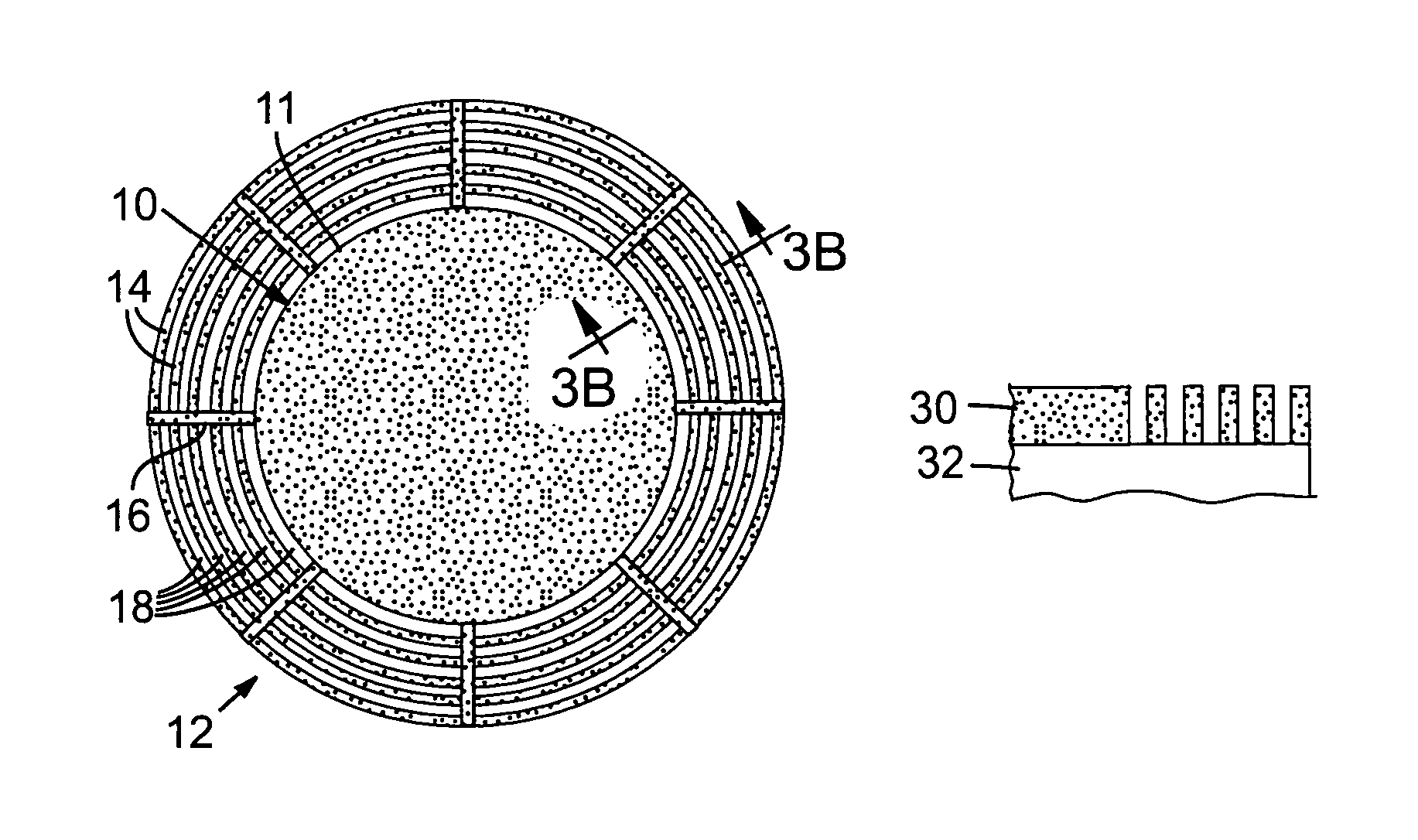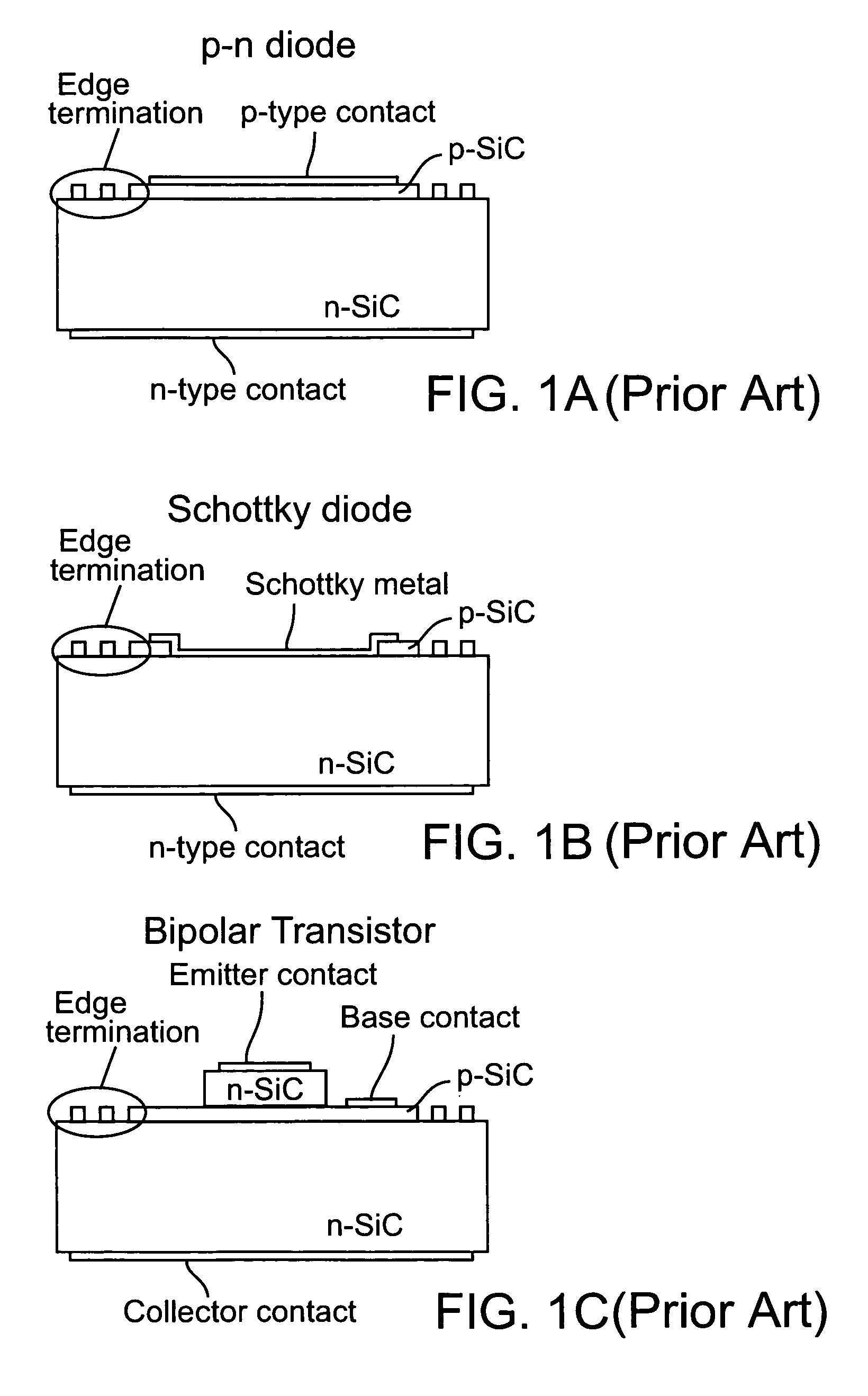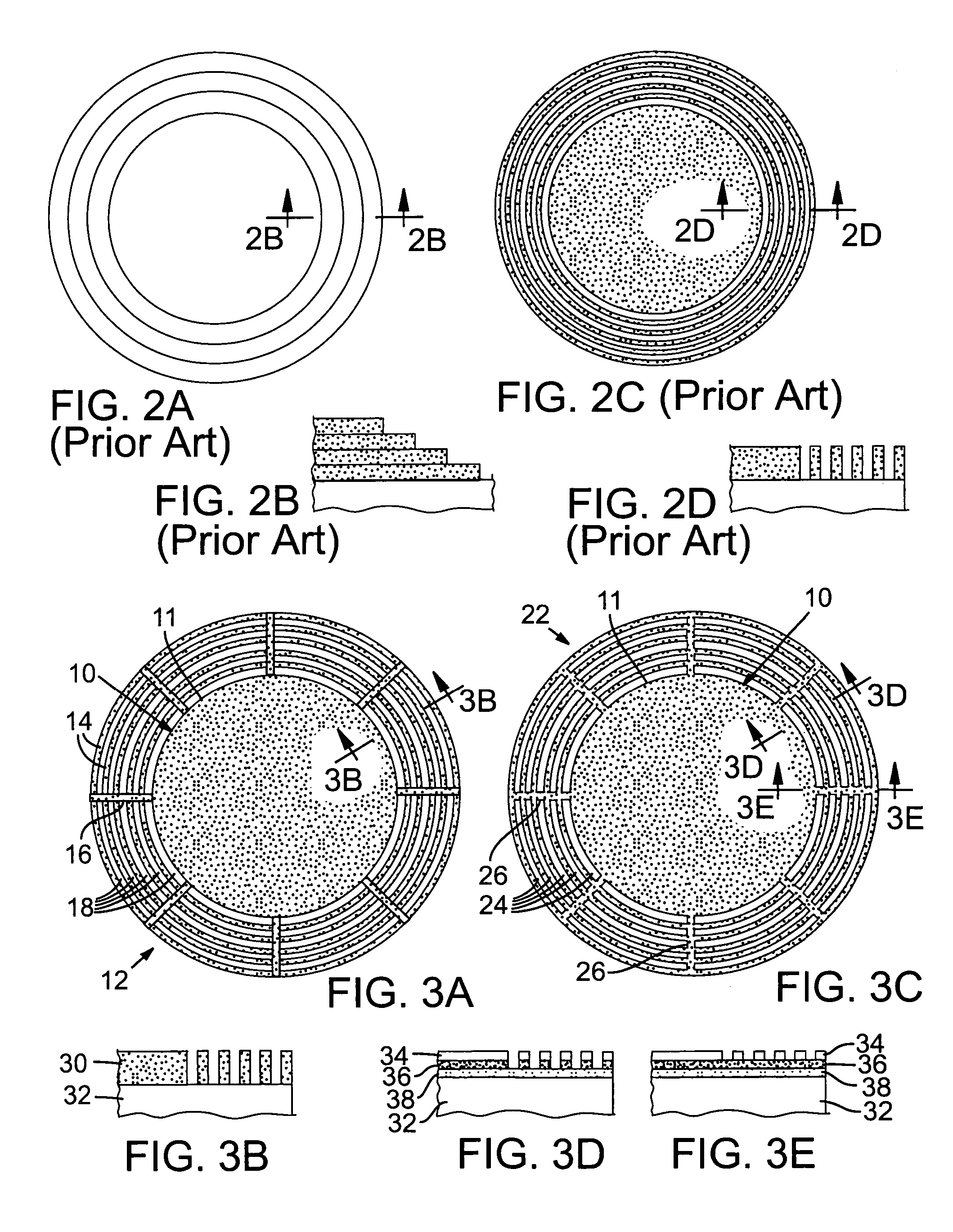Junction termination structures for wide-bandgap power devices
a technology of junction termination and power device, which is applied in the direction of semiconductor devices, electrical apparatus, transistors, etc., can solve the problems of complex and more difficult control, high blocking voltage, etc., and achieve the effect of simple controllable process and high blocking voltag
- Summary
- Abstract
- Description
- Claims
- Application Information
AI Technical Summary
Benefits of technology
Problems solved by technology
Method used
Image
Examples
Embodiment Construction
[0025]A junction termination structure for a high voltage semiconductor power device according to various embodiments of the invention comprises a finely patterned structure with different implant doses or different etch depths, that reduce the high field regions in the structure. This approach is increasingly effective as the finely patterned structure can have a minimum feature size that is distinctly smaller than the depletion layer width of the device. An added feature is the use of highly resistive links between concentric rings, potentially combined with regions that cannot be fully depleted and regions that are always depleted. Typical dimensions for SiC blocking layers are 10-micron depletion layers for 1000V blocking voltage, while the edge termination structure would be multiple times the depletion layer width, namely 30 to 100 micron. Structures with higher blocking voltage have larger depletion layers and also larger edge terminations. The desired minimum feature size is...
PUM
 Login to View More
Login to View More Abstract
Description
Claims
Application Information
 Login to View More
Login to View More - R&D
- Intellectual Property
- Life Sciences
- Materials
- Tech Scout
- Unparalleled Data Quality
- Higher Quality Content
- 60% Fewer Hallucinations
Browse by: Latest US Patents, China's latest patents, Technical Efficacy Thesaurus, Application Domain, Technology Topic, Popular Technical Reports.
© 2025 PatSnap. All rights reserved.Legal|Privacy policy|Modern Slavery Act Transparency Statement|Sitemap|About US| Contact US: help@patsnap.com



